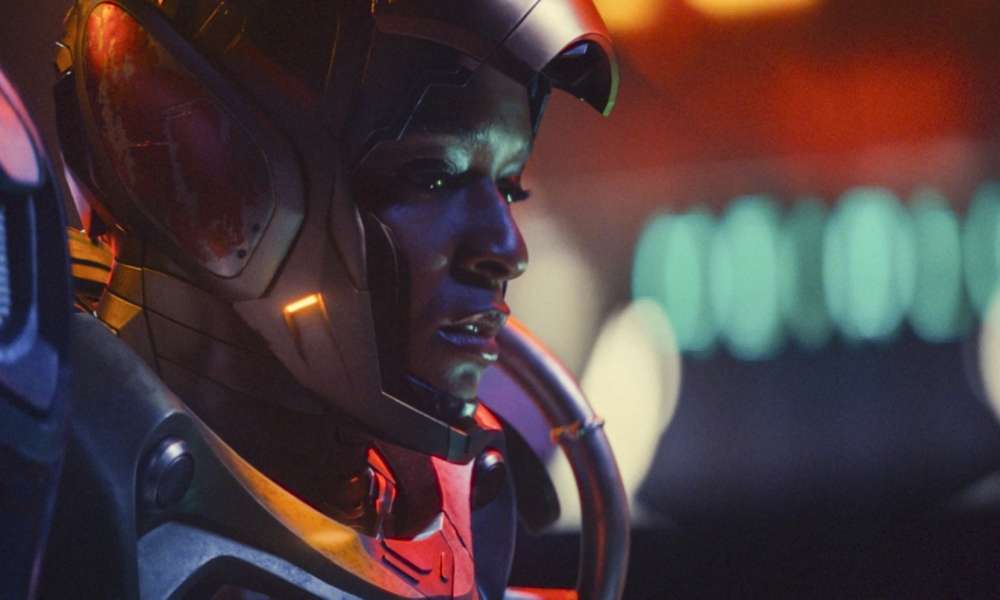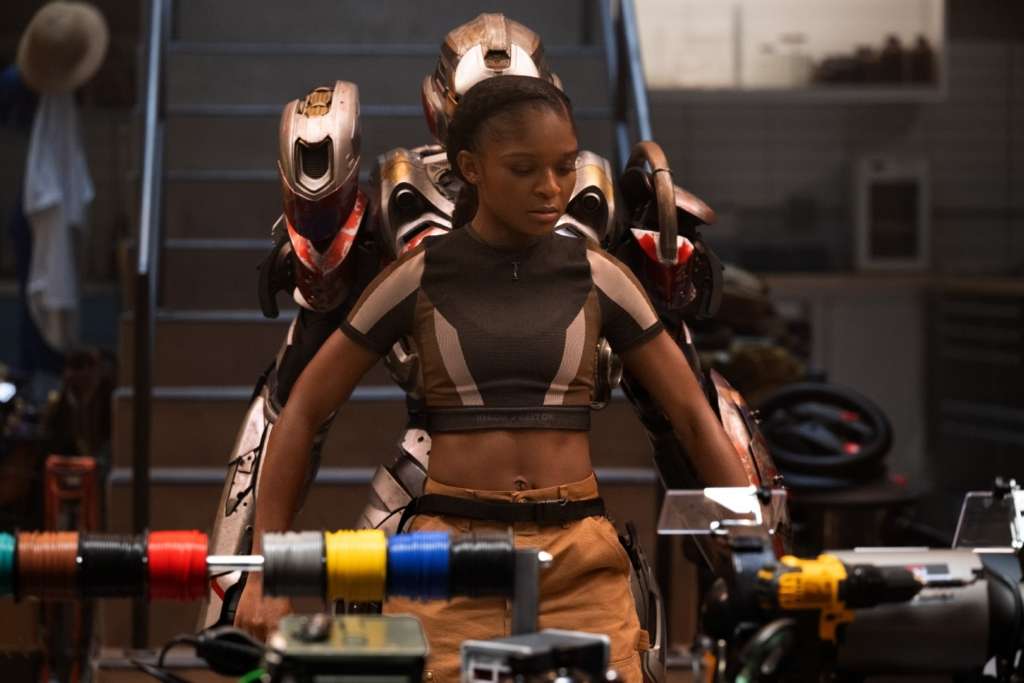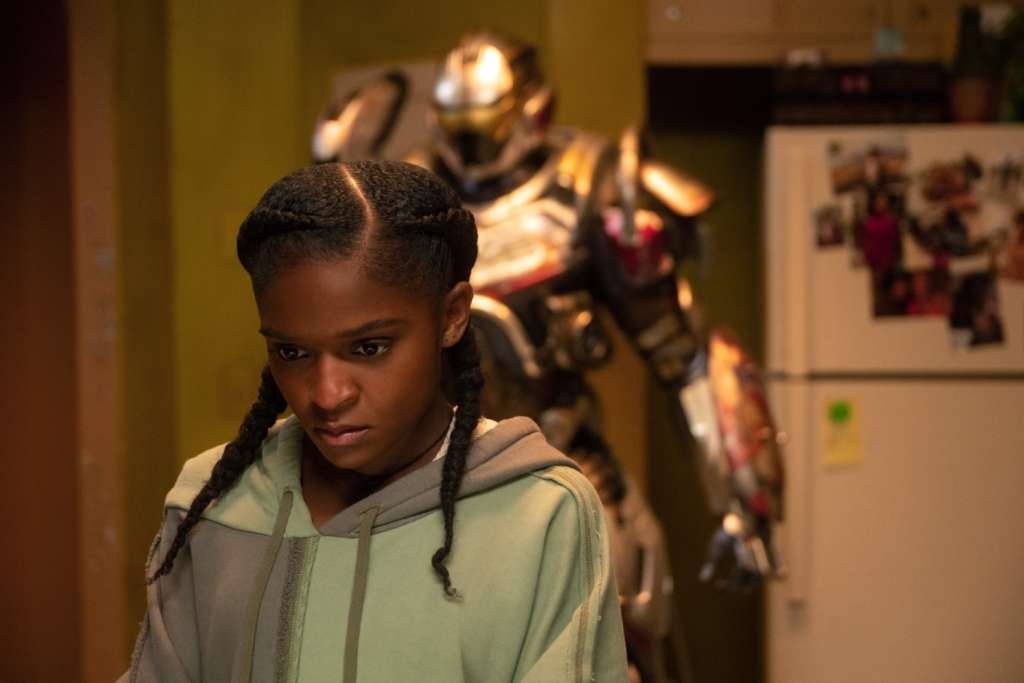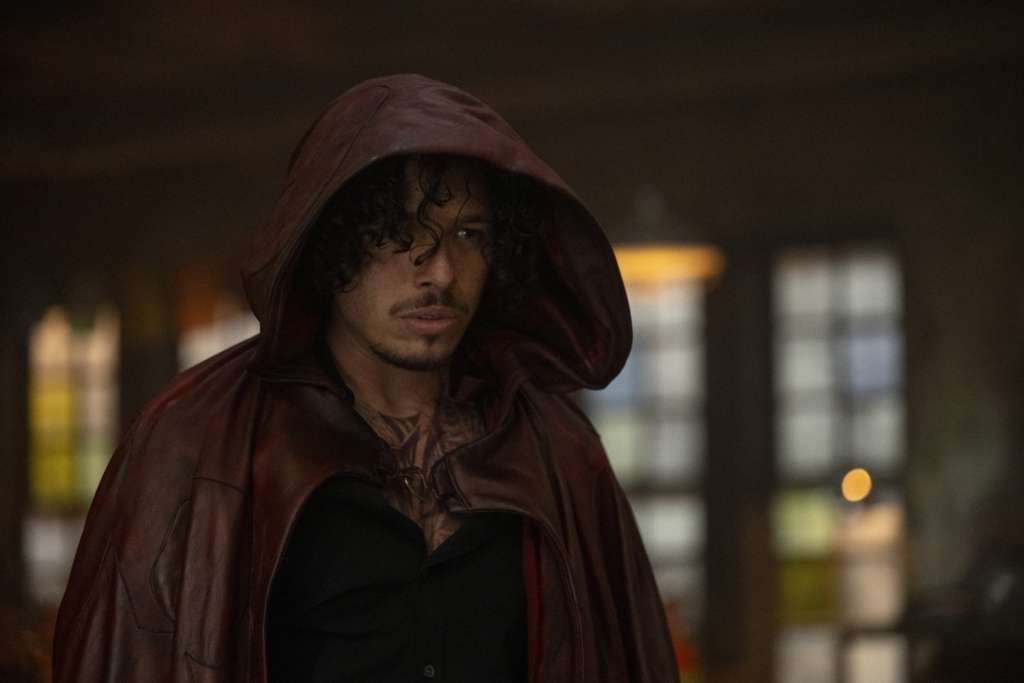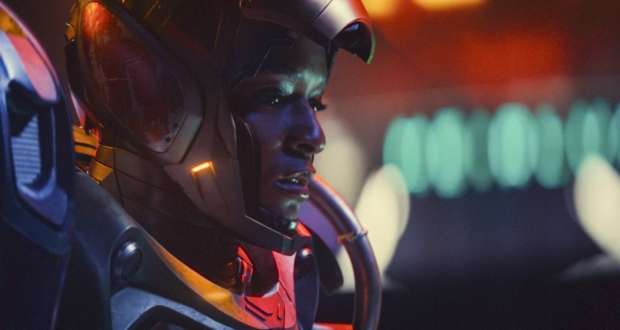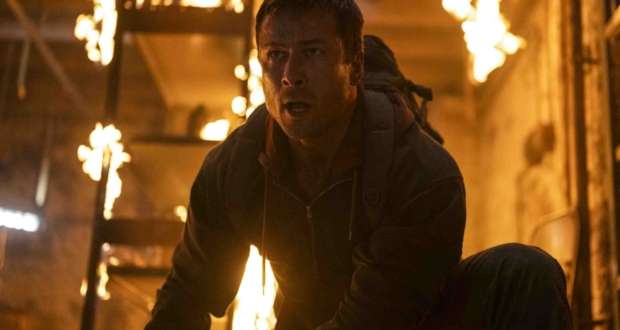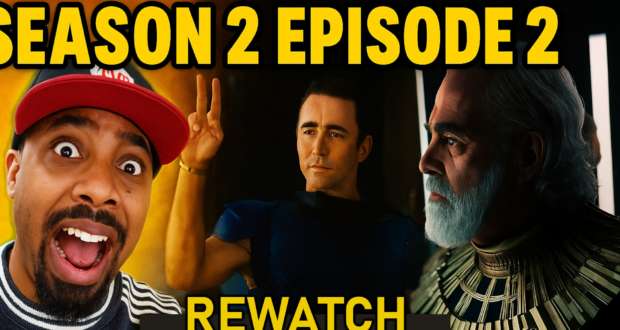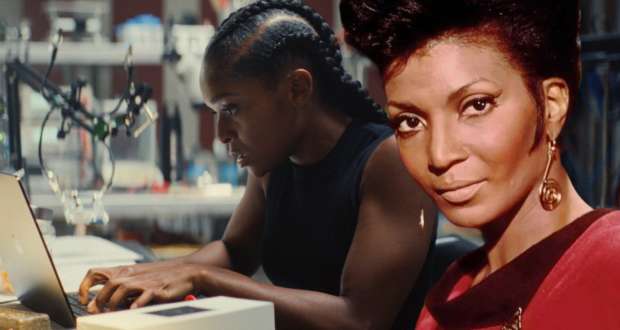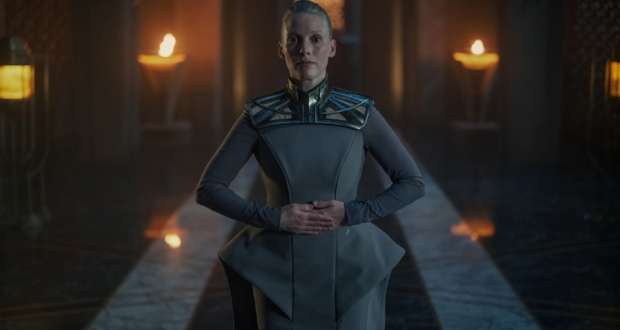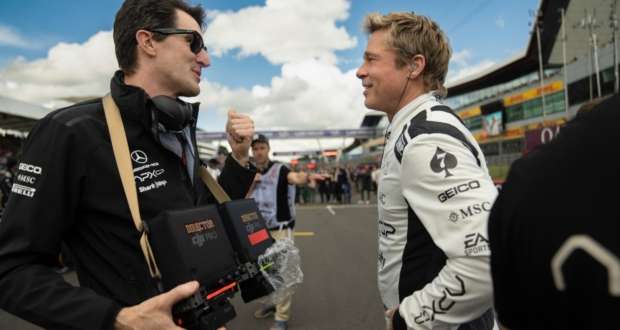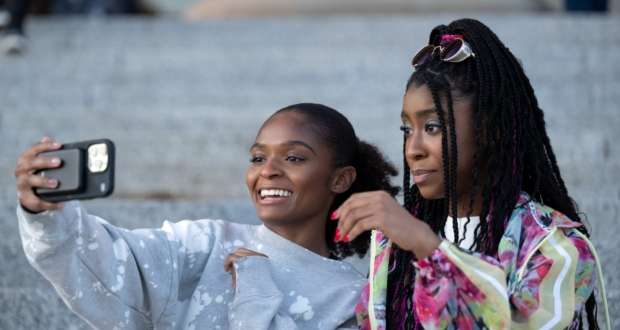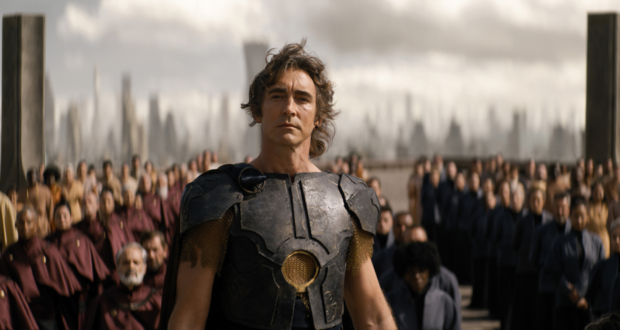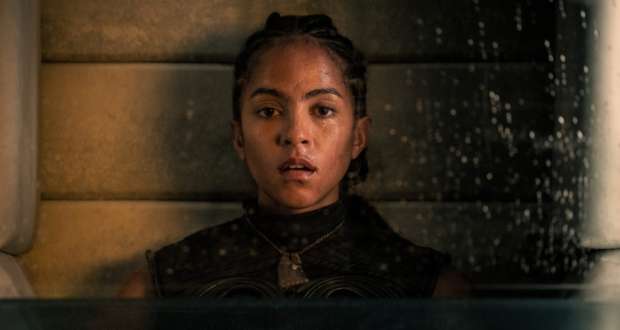Suit Up, Break Down: Ironheart’s Quiet Story About Anxiety
On the surface, The Ironheart Marvel Series is about a genius Black girl in high-tech armor fighting a magic-wielding villain. But under all the CGI suits and comic book showdowns lies something quieter and more powerful: a story about stress, trauma, and the mental health cost of being young, gifted, and trying to survive.
Riri Williams, played by Dominique Thorne, returns home to Chicago after the events of Black Panther: Wakanda Forever, already carrying the emotional burden of her father’s death and the pressure of being a prodigy. While her iron suits may shield her from bullets and magic, nothing protects her from the internal war she’s fighting. This is where the Ironheart Marvel series starts to echo the anxiety epidemic plaguing Gen Z.
The Emotional Engineering of Riri Williams
Co-showrunner Chinaka Hodge confirmed during an AAFCA roundtable that Riri’s story is about more than just gear and gadgets. “Riri has this gaping wound of loss,” Ryan Coogler noted. Her father’s death and her drive to create technology that can protect comes from a place of grief and insecurity. She’s not Tony Stark 2.0. She’s a kid building armor to stop herself from feeling everything at once.
This emotional armor is relatable for a generation growing up in a world that feels like it’s always ending, whether from climate change, systemic injustice, or pandemic trauma. The pressure to perform and excel, especially for Black and Brown youth, becomes its own kind of supervillain.
Ironheart‘s brilliance is that it doesn’t scream “mental health story.” It whispers it. But you can hear it in Riri’s shortness of breath, her isolation, the way she shuts down people trying to help. It’s in the silence between scenes and in the choices she makes. Some of those choices are self-destructive, some are just survival.
Enter the Hood: A Villain and a Mirror
Parker Robbins, aka The Hood, played by Anthony Ramos, isn’t just a bad guy. He’s a reflection of Riri’s own shadow: ambitious, scrappy, willing to make morally gray choices to get ahead. He understands the pressure. He exploits it. Their relationship isn’t just a hero vs. villain dynamic. It’s a dialogue between two paths shaped by trauma and desperation.
That’s where the anxiety really blooms. Riri’s mental state isn’t just impacted by grief. It’s weaponized. It’s part of how the show tells a deeper story about the decisions young people are forced to make when they have limited resources, limited support, and a whole world of expectations on their back.
Riri and Miles: The MCU’s Anxious Kids
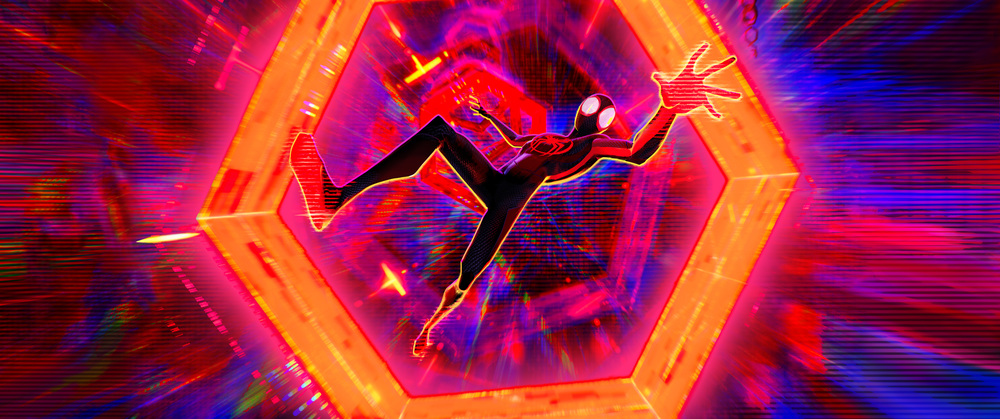
Spider-Man (Shamiek Moore) in Columbia Pictures and Sony Pictures Animation’s SPIDER-MAN: ACROSS THE SPIDER-VERSE.
We’ve seen this story before in The Spider Within, the short film set in the Spider-Verse world. Miles Morales, mid-swing between buildings and obligations, suffers a full-blown panic attack. It’s one of the most honest portrayals of anxiety Marvel has ever released. And it hits hard.
Miles and Riri are mirrors. Both are young people of color gifted with genius and burdened by it. Both try to navigate family expectations, cultural identity, and superhero-sized responsibility while trying not to fall apart. These aren’t just cool teen heroes. They’re anxious, overwhelmed kids pretending to be okay.
In The Spider Within, the filmmakers don’t cut away from the panic. They lean in. You see Miles’ vision blur and hear the thump of his heartbeat. In the Ironheart Marvel series, the emotional language is different, but it’s there. It’s in the missed calls, the sleepless nights, the overcommitment to tech and control as a substitute for emotional regulation.
Why This Matters
It’s easy to forget that Riri is just a teenager when she’s flying in an iron suit. But Marvel, under Hodge and Coogler’s guidance, doesn’t let us forget that. They make her humanity the point. “With whom are they making deals?” Hodge asked, referring not just to literal deals with devils like The Hood, but the emotional contracts young people are forced to sign to get ahead. Sacrificing peace for success. Swapping stability for survival.
Ironheart isn’t a therapy session. It’s a superhero show. But it understands the emotional currency of being young in a world that doesn’t feel safe. And it dares to say something honest: even geniuses get panic attacks. Even superheroes break down.
Marvel’s younger generation of heroes are no longer aspirational because they’re invincible. They’re aspirational because they keep going, even when their minds are warring against them. The Ironheart Marvel series joins Spider-Verse in telling kids: yes, you can be brilliant. Yes, you can be anxious. Yes, you can be both. And no, you’re not alone.
